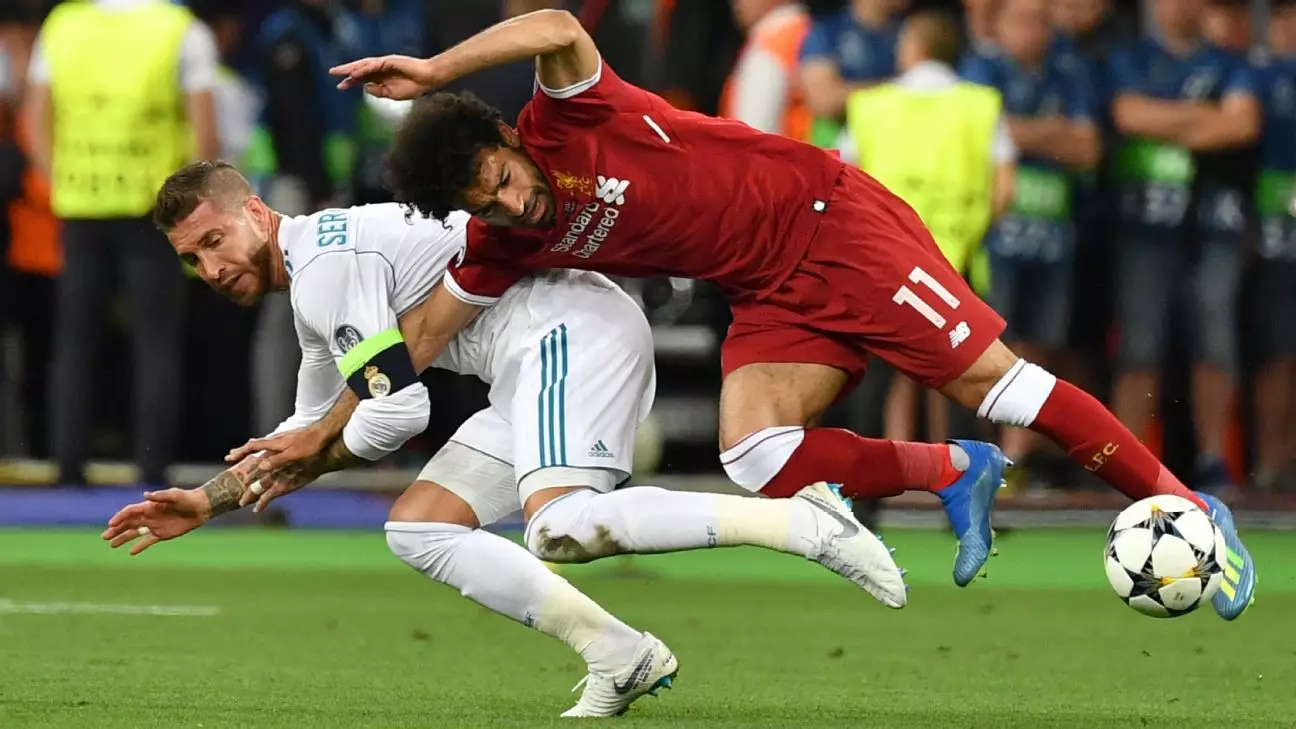The world of football is often punctuated with rivalry and drama, and the exchange between Jürgen Klopp and Toni Kroos regarding Sergio Ramos exemplifies this intensity. Klopp, a figure synonymous with tactical acumen and player development, took a firm stance against Ramos, the renowned former Real Madrid captain, questioning the integrity of his playing style. This incident harks back to the infamous 2018 UEFA Champions League final, where Ramos’s controversial challenge on Mohamed Salah marked a pivotal moment in the match and arguably, Salah’s season. This clash serves as the backdrop for Klopp’s recent remarks, giving insight into his perspective on sportsmanship and player conduct.
During the poignant 2018 match in Kyiv, Salah was unceremoniously brought down by Ramos, resulting in the Egyptian’s early exit due to a shoulder injury. With Madrid subsequently winning 3-1, the incident lingered in the minds of fans and players alike, prompting debates about the ethics of tackling and the responsibilities of defenders. Klopp’s reflections on this moment during Kroos’s Einfach mal Lupen podcast illustrate how deeply this event affected his view of Ramos. When questioning whether Ramos truly embodies the qualities of a “good guy,” Klopp revealed not only his disapproval of Ramos’s methods but also a broader critique of a mentality that prioritizes winning at all costs.
The philosophical divide between Klopp’s coaching approach and Ramos’s playing mentality raises critical discussions in football. Klopp’s emphasis on sportsmanship and player welfare contrasts sharply with Ramos’s aggressive style, which many attribute to his success at the highest level. While Kroos initially defended Ramos’s character by labeling him a “very good teammate,” Klopp countered that such camaraderie does not excuse on-field actions that compromise the safety of adversaries. This dichotomy is not just about individual players; it reflects larger themes within football regarding the balance between competitiveness and ethical responsibility.
A Broader Reflection on Sportsmanship
Klopp’s assertion that he could “never understand that mentality” and his subsequent actions to distance himself from players with such a mindset speaks volumes about his values as a manager. In a sport where physicality is often celebrated, Klopp’s critical view highlights an ongoing debate: should the ethos of the game prioritize aggressive tactics over respectful competition? His experience, having led Liverpool to a Champions League triumph in 2019, enhances his credibility, positioning him as an advocate for a more principled approach to the sport.
The Aftermath and Its Implications
As Klopp transitions into a new role as head of global soccer at Red Bull, his perspectives on player conduct may likely influence upcoming generations of footballers. The remarks about Ramos serve not only as a critique of an individual player but also as a clarion call for a shift towards a more considerate approach in football. As the sport evolves, the discussions initiated by figures like Klopp will be instrumental in shaping the future of player ethics and conduct on the field. The clash of philosophies represented in this dialogue serves as a reminder that football is not just about winning; it’s also about the values and integrity that underpin the beautiful game.

Leave a Reply